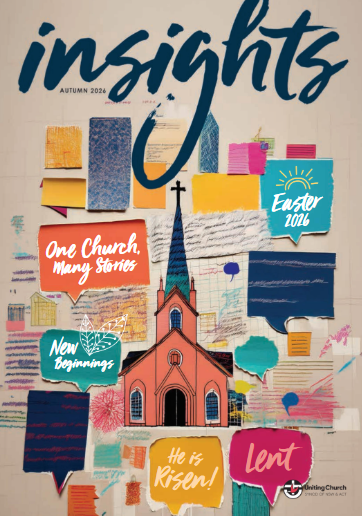A Kingdom at the Border
The border isn’t only a line in the sand or a fence cutting across hills. It’s also a place where theology bleeds. It’s where fear meets flesh, where the policies of nations touch the skin of people experiencing poverty. Here, humanity is measured in papers, permits, and checkpoints; worth is determined by status; and those who cross without authorization are named “illegal,” as if a human life could be outlawed.
But the gospel tells another story.
In the kingdom Jesus proclaimed, there are no outsiders, no disposable lives, no walls that keep grace out. In the kingdom, the stranger isn’t a threat but a mirror in which we see our own dependence on mercy. The Scriptures insist that God loves the foreigner, and calls the people of God to do the same, not as a political slogan but as a defining mark of holiness. The Incarnation itself is an act of divine crossing: the eternal Word stepping over the border of heaven into the poverty, danger, and fragility of human existence.
If we claim to follow the crucified Christ, our politics, our ethics, and our economics must learn to kneel at this border.
If we claim to follow the crucified Christ, our politics, our ethics, and our economics must learn to kneel at this border.
The Stranger in the Life of Jesus
Jesus was born under the shadow of empire, to a family on the move. A forced flight to Egypt marked his first days, his parents carrying him across borders as refugees escaping state violence. Before he could walk or speak, Jesus knew the taste of displacement. He knew what it was to live without papers, without power, relying on the mercy of strangers.
Throughout his ministry, Jesus walked along the margins, geographic, social, and moral. He touched lepers no one else would touch, sat with women whose reputations were ruined, dined with tax collectors despised by their own people. He did not simply serve the outsider from a place of safety; he identified with them so deeply that he said, “I was a stranger and you welcomed me.” To reject the immigrant, the refugee, the undocumented neighbor, is to turn Christ away at the door.
And the cross? The cross is the ultimate symbol of identification with the powerless, the criminalized, and the condemned. Crucifixion was Rome’s way of saying, You have no place here. You have no rights. You do not belong. In Jesus, God absorbed that rejection into the very life of the Trinity. Which means that whenever a human being is rejected at a border, detained in a camp, or deported without mercy, Christ is there, on the wrong side of the wall.
The Kingdom’s Reversal of Status
Christian spirituality insists that our identity isn’t sealed by the documents we carry but by the image of God we bear. This isn’t a pious abstraction. It’s a political and spiritual earthquake. It means that the undocumented neighbor is as fully endowed with divine dignity as the citizen, the soldier, or the president. It means that worth cannot be earned by assimilation, nor can deportation erase it.
Jesus constantly inverted the hierarchy of belonging. “The last will be first,” he said, not as poetry but as policy in the kingdom of God. He did not speak of citizenship in terms of passports or visas, but in terms of proximity to the heart of God. In the Beatitudes, it’s the poor in spirit, the merciful, the persecuted who are called blessed, not the secure, the credentialed, the protected.
Our identity isn’t sealed by the documents we carry but by the image of God we bear.
This upside-down kingdom calls the church to stand where the world refuses to stand, at the side of the stranger without papers, without advocates, without a voice.
Compassion in a Complicated World
Some will say, it’s not that simple. And they are right. Immigration policy is complex. Nations have responsibilities to their citizens. Borders exist in the real world, and governments are responsible for maintaining order and security.
But the call of Christian spirituality isn’t to reduce complexity to sentimentality. It’s to live as people whose moral compass is set by the cross, not by convenience. The gospel does not provide us with a detailed policy platform; it offers us a posture. That posture is shaped by compassion, hospitality, and solidarity, without surrendering truth or discernment.
This means we can acknowledge the need for lawful process while refusing to let legality determine who is worthy of care. It means resisting the temptation to dehumanize those who break immigration laws, recognizing that desperation often drives the risk. It means advocating for systems that are just, merciful, and rooted in the recognition that borders are not God’s ultimate concern; people are.
The Cruciform Lens on State Power
The cross teaches us to be wary of any state that uses power to crush the vulnerable. Rome claimed to be the bringer of order, peace, and prosperity, known as the Pax Romana. Yet that peace was enforced by occupation, surveillance, and the execution of those who threatened the imperial narrative. The crucifixion of Jesus unmasks the myth that state violence is ever purely for the common good.
When we see governments detaining children in cages, deporting parents without due process, separating families as a deterrent, or turning away boats of desperate people, the cross teaches us to ask: Who benefits from this cruelty? Whose fears are being fed? Whose humanity is being denied?
The cross teaches us to be wary of any state that uses power to crush the vulnerable.
Cruciform discipleship calls the church not to be chaplains of border policy but prophets to the nations, reminding them that every person detained, deported, or drowned at sea bears the image of God. A nation’s greatness isn’t measured by the size of its walls but by the breadth of its welcome.
Hospitality as Resistance
In the ancient world, hospitality wasn’t optional; it was a fundamental aspect of social interaction. For Israel, it was a divine command rooted in memory: “You were foreigners in Egypt.” For the early church, it was a mark of the Spirit’s work, opening homes, tables, and hearts to those who did not belong.
Today, hospitality is an act of resistance against cultures of suspicion. It’s a refusal to let fear dictate our ethics. To welcome the undocumented neighbor into our churches, our homes, our schools is to declare that their worth isn’t contingent on the approval of the state but on the love of God. It’s to live as if the Sermon on the Mount were more binding than immigration law.
Such hospitality isn’t naive. It does not ignore risk or complexity. It simply refuses to let those realities eclipse obedience to Christ. It trusts that the Spirit can create a table where fear says, “Build a wall.”
The Church as Sanctuary
In the tradition of Christian spirituality, the church has often served as a literal sanctuary for those fleeing danger and persecution. Monasteries hid refugees. Cathedrals sheltered the persecuted. Pastors forged safe passage for those hunted by unjust powers.
This legacy isn’t nostalgia, it’s vocation. In our day, sanctuary might mean providing shelter for those at risk of deportation. It might mean accompanying undocumented neighbors to court hearings. It might mean legal aid, advocacy, and public witness. It might mean risking reputation and resources to embody the love of Christ.
The question isn’t whether the church can do these things, but whether it will. Will we be the presence of Christ at the border and in the detention center, or will we remain safe in the suburbs of silence?
Seeing Christ in the Undocumented
Mystical theology insists that Christ hides in the least, the lost, the stranger. “Whatever you did for one of the least of these,” Jesus said, “you did for me.” This isn’t a metaphor. It’s a declaration that our treatment of the undocumented is our treatment of Christ.
When we turn away the asylum seeker, we turn away Christ. When we mock the migrant caravan, we mock Christ. When we welcome the stranger, feed the hungry, visit the detainee, we welcome Christ himself.
Our treatment of the undocumented is our treatment of Christ.
The Cross at the Border
At the border, the logic of the cross collides with the logic of empire. Empire says, protect your own, secure your land, keep out the unworthy. The cross says, lose your life to find it, love your enemy, welcome the stranger.
Empire crucifies the stranger to preserve the illusion of safety. The cross welcomes the stranger even if it costs safety. This isn’t recklessness; it’s trust in the God who calls us to love beyond borders, even beyond reason.
Advocacy as Spiritual Discipline
Speaking for the undocumented isn’t an optional add-on to Christian spirituality; it’s integral to our discipleship. Advocacy is a form of prayer with our bodies. It’s intercession in public, pleading not only before God but before the rulers of this age.
This may involve writing to lawmakers, participating in peaceful protests, supporting organizations that provide legal aid, or bearing public witness to the humanity of our undocumented neighbors. It means calling out the dehumanizing language that reduces people to “illegals,” challenging policies that perpetuate fear, and offering a vision of belonging rooted in the gospel.
The Table of the Lord
Every time we gather at the Lord’s Table, we enact the truth that in Christ, there are no outsiders. The Eucharist is borderless. There is one bread, one body, one Spirit. No one is asked for papers at this table. No one is deported from grace.
No one is asked for papers at this table. No one is deported from grace.
Resurrection Beyond the Wall
The hope of the resurrection isn’t a sentimental afterthought; it’s the engine of Christian courage. Because Christ is risen, we can face the suffering at our borders without despair. We can work for justice even when change feels impossible. We can offer hospitality even when it seems unsafe. We can love beyond the limits of our imagination.
Resurrection assures us that every act of mercy toward the undocumented—every shelter offered, every meal shared, every policy challenged—isn’t wasted. It will be gathered into the new creation where every tribe, tongue, and nation will dwell together without fear, without borders, without exile.
Following the Stranger Who Saves
The undocumented immigrant isn’t first a problem to be solved but a person to be loved. Their story may be complicated; their legal status may be contested. But their dignity isn’t up for debate.
Christian spirituality, shaped by the life, words, and cross of Jesus, calls us to a costly love, a risky hospitality, and a stubborn solidarity. It calls us to stand in the tension of compassion and truth, to seek justice without dehumanizing, and to see in every border crosser the face of Christ.
We follow a Savior who crossed the ultimate border to bring us home. We follow a crucified refugee whose kingdom isn’t defended by walls but by wounds. We follow the One who was a stranger, that every stranger might become a friend.

And so, in this age of border walls and detention centers, may the church be known not for the size of its buildings but for the breadth of its welcome. May we be found at the border, bread in hand, arms open, eyes searching for the Christ who still comes to us, without papers, without privilege, but with the power to turn strangers into family.
Graham Joseph Hill is the Mission Catalyst – Church Planting and Missional Renewal for Uniting Mission and Education. You can read his Blog here and his Substack here.





